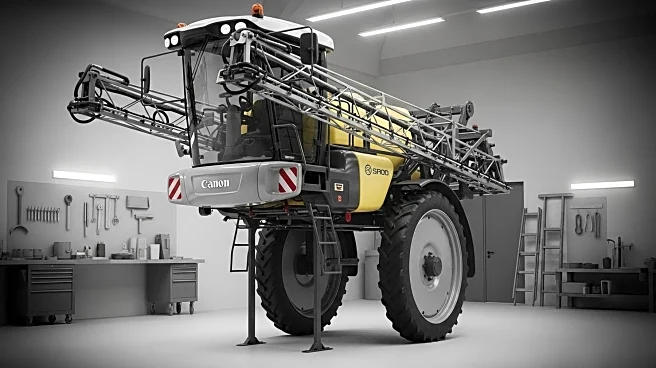What's Happening?
Chafer Machinery, an agricultural machinery manufacturer based in Upton, North Lincolnshire, has filed a notice of intention to appoint administrators. The company, which has been operational since 1901, specializes in designing and manufacturing crop sprayers, applicators, and de-icers. Despite having net assets of over £1.6 million as of September 2024, Chafer Machinery owes creditors more than £2.4 million. The decision to appoint administrators signals significant financial distress, potentially impacting its 43 employees and the broader supply chain based in the UK.
Why It's Important?
The filing for administration by Chafer Machinery highlights the financial challenges faced by manufacturing companies in the agricultural sector. This development could have ripple effects on the local economy, particularly affecting jobs and the supply chain network. The company's financial difficulties underscore the broader economic pressures on manufacturing firms, which may include rising costs, supply chain disruptions, and competitive market conditions. Stakeholders such as employees, suppliers, and local businesses may face uncertainty as the company navigates its financial restructuring.
What's Next?
The appointment of administrators is expected to lead to a thorough review of Chafer Machinery's financial situation and operations. Potential outcomes could include restructuring, asset sales, or even liquidation if a viable path forward is not identified. Stakeholders will be closely monitoring the situation, with employees and creditors particularly concerned about the implications for their future. The administration process will likely involve negotiations with creditors and efforts to stabilize the company's financial position.
Beyond the Headlines
The situation at Chafer Machinery may reflect broader trends in the manufacturing industry, where companies are increasingly challenged by economic volatility and changing market demands. The need for innovation and adaptation in manufacturing processes could be crucial for survival in such competitive environments. Additionally, the case raises questions about the sustainability of traditional manufacturing models in the face of technological advancements and global economic shifts.











